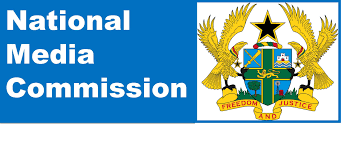Editorial
Kudos to Glory Hill International School
Dear Sir/Madam,
I am thrilled by the style of Glory Hill International School situated at Oyarifa School junction, in terms of how their final year students are handled on completion of their Basic Education Certificate Examination (BECE) and the excitement is what has informed my decision to write this letter.
To the best of my knowledge, this is the only school when you finished writing the Basic Education Certificate Examination (BECE), the management of the school gives the students a break for one week, and then the students go back to school until the term ends.
One may ask ‘what the students will be doing since they would have been done with their final exam; well they are taught about their next level of education – Senior High School (SHS).
They take them through the compulsory subjects such as Mathematics and English are delved into preparations for their graduation ceremony which comes off on the last day of the term or so.
For me, this initiative by the school is very laudable and worth emulating.
It broadens the horizon of the students, prepares them for their next level of academic pursuits, and prevents unnecessary roaming about especially as parents who have left for work.
Again these JHS graduates of Glory Hills International School in Oyarifa, as a result of the schools initiative, are very less likely to spend all their time on mobile phones as is the norm with most BECE graduates because they will still be in school.
Additionally, by this act the school ensures that the school fees paid for the term is fully exhausted and not “cut-off” after the BECE.
By this letter, I am commending the founder of the school Mrs. Georgina Obeng as well as management and staff of the school for this laudable act.
We need more of such initiatives in our schools.
Nana Asabaa Ababio- (Mrs)
Proud Parent
Editorial
NMC must enforceguidelines to protectviewers, especially minors

Dear Editor,
I WRITE to express my growing concern about the increasing display of adult content on some television stations in the country.
These programmes, often aired during hours when children are most likely to be watching, pose a serious threat to their moral development and general well-being.
Television remains one of the strongest influences on young people, and stations have a responsibility to ensure that their content reflects the values we seek to instil in our society.
Unfortunately, some channels appear to prioritise sensationalism and profit over public safety and decency.
Such content not only exposes children to material they are not prepared to process but also undermines parents’ efforts to guide their behaviour.
I call on the National Media Commission (NMC) and other regulatory bodies to intensify monitoring and enforce stricter guidelines to protect viewers, especially minors.
Broadcasters must be reminded of their duty to promote responsible and wholesome programming.
Our airwaves should uplift, educate, and inform — not endanger the moral fabric of the next generation.
Eugene Ampiaw,
Accra
Join our WhatsApp Channel now!
https://whatsapp.com/channel/0029VbBElzjInlqHhl1aTU27
Editorial
Balancing faith,discipline at Wesley Girls SHS
Dear Editor,
I AM writing to share my thoughts on the ongoing issue at Wesley Girls’ Senior High School, which has attracted national attention after the Deputy Attorney General released a statement in court.
The matter is about whether Muslim students are being denied the right to freely practice their religion, and whether they are being compelled to follow practices that go against their faith.
To me, this is not just a legal issue but a question of fairness and respect in our schools.
While the Constitution guarantees every student the right to practice their faith, schools also have traditions and rules that must be respected. As the saying goes, “When you go to Rome, you do what Romans do.” If a teacher is teaching, it is not right for a student to suddenly leave for prayers. That disrupts learning.
Instead, schools should provide a clear time and place for worship, so that students can honour their faith without disturbing academic work. There is time for everything; time to learn, and time to pray.
Wesley Girls SHS can continue to uphold its Methodist heritage while also respecting the rights of Muslim students.
This compromise will protect unity and ensure that our schools remain places of both discipline and inclusion.
Princess Wonovi
Accra
Join our WhatsApp Channel now!
https://whatsapp.com/channel/0029VbBElzjInlqHhl1aTU27






